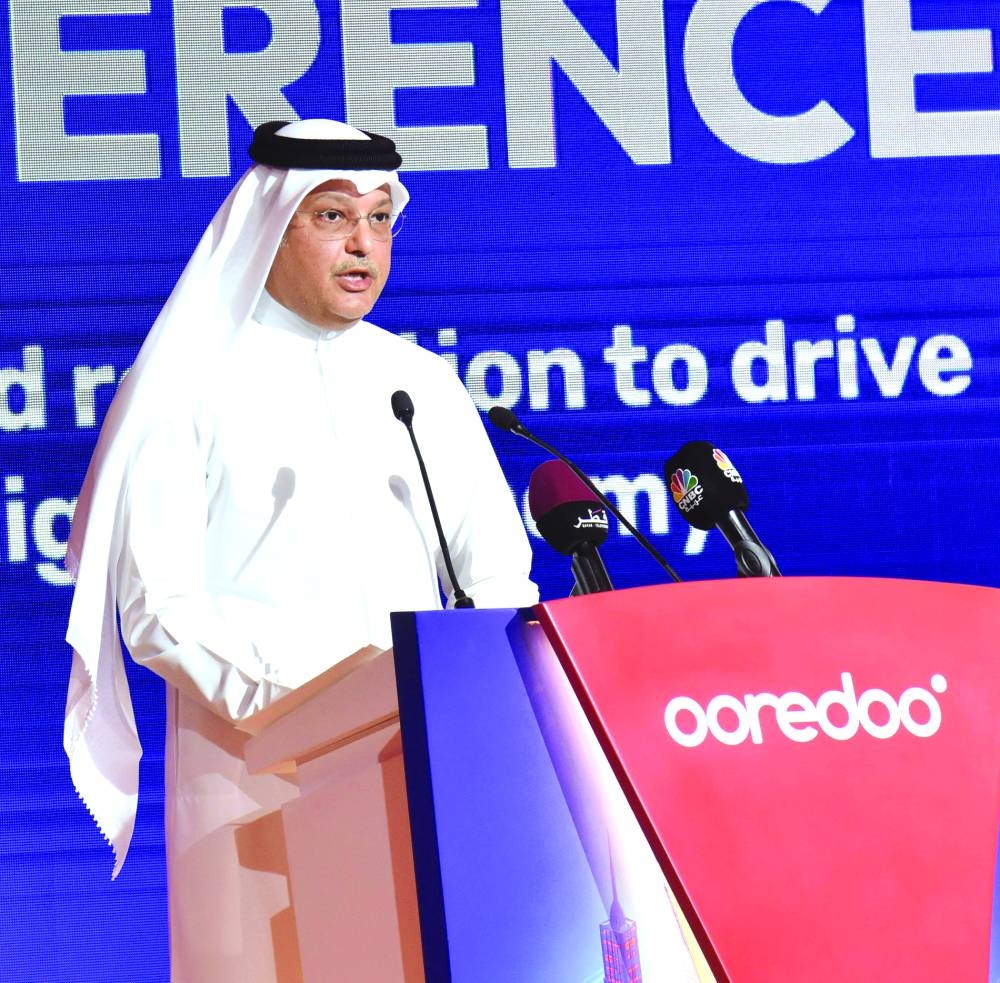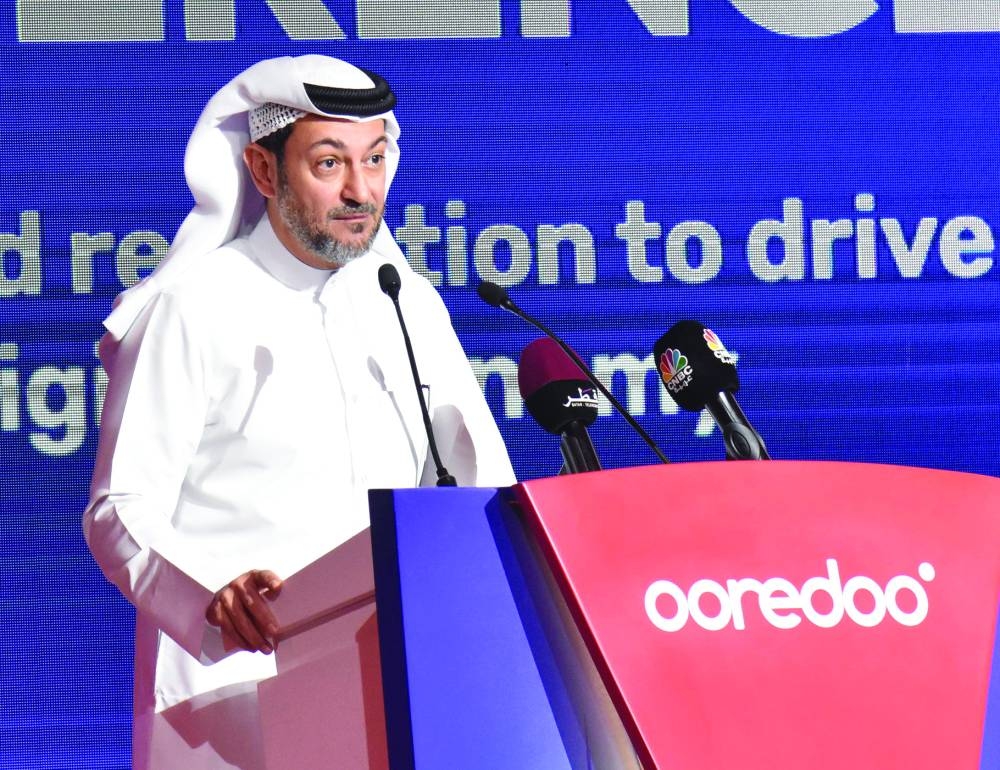Qatar, which has earmarked QR9bn to achieve digital transformation, on Wednesday reiterated its unwavering commitment to develop a digital ecosystem and said it is developing a specialised programme to encourage foreign direct investment in the sector.
Addressing the Digital Ecosystem Conference, organised by Ooredoo Group, HE the Minister of Communications and Information Technology Mohammed bin Ali al-Mannai said the (specialised) programme focuses on facilitating the necessary procedures to support emerging technology companies and providing incentives that contribute to attracting global investors.
Highlighting that the legislative and regulatory system is being constantly developed in Qatar, he said the secure data law will be issued soon, which represents a new addition to enhance the regulatory and legislative environment.
Through these efforts, the Ministry of Communications and Information Technology (MCIT) seeks to open new horizons for economic growth, ensure the comprehensiveness of the digital system, and enhance the competitive position of Qatar at the international level, he told the conference, themed "Legislation and Regulation to Drive a Successful Digital Economy."
Highlighting that Qatar has allocated QR9bn ($2.5bn) for digital transformation programmes through investment in emerging technology, innovation, and artificial intelligence (AI), al-Mannai said these investments are the foundation on which Qatar builds its digital future.
The Digital Agenda 2030 is at the heart of this transformation, he said, adding it is a roadmap to accelerate digital transformation in Qatar, a strategy to build a knowledge-based economy, reduce dependence on oil resources, and enhance the country's position in the field of innovation.
He said the country's journey in the digital transformation is not limited to adopting new technologies but focusing on creating a digital environment where new companies can grow.
Ooredoo Group chief executive officer Aziz Aluthman Fakhroo said emerging technologies and their many applications are advancing at such a rapid rate that the old model, where authorities create rules and sector participants follow them, just isn't enough anymore.
"Instead, we need a collaborative framework and an ecosystem where different participants and stakeholders approach policymaking and regulatory intervention together," he said, adding as sector participants, Ooredoo understands these technologies, their commercial potential and the risk that they may bring.
Working closely with regulators is essential for creating an environment that encourages investment while ensuring public safety, trust, and fair competition, according to him.
"A key message I want to share today is that it's not emerging technologies themselves that necessarily need regulating. Its specific use case they enable," he said.
Highlighting that in a world where the industries are intertwined and work in partnership, Fakhroo said Ooredoo Group is now regulated by many stakeholders as the telecom regulator, the central bank and financial oversight authorities.
"How do these different stakeholders collaborate together to create a proper environment for investment and innovation is the key," he said.

HE the Minister of Communications and Information Technology Mohammed bin Ali al-Mannai outlines Qatar’s unwavering commitment to develop digital ecosystem PICTURE: Thajudheen

Ooredoo Group chief executive officer Aziz Aluthman Fakhroo PICTURE: Thajudheen

